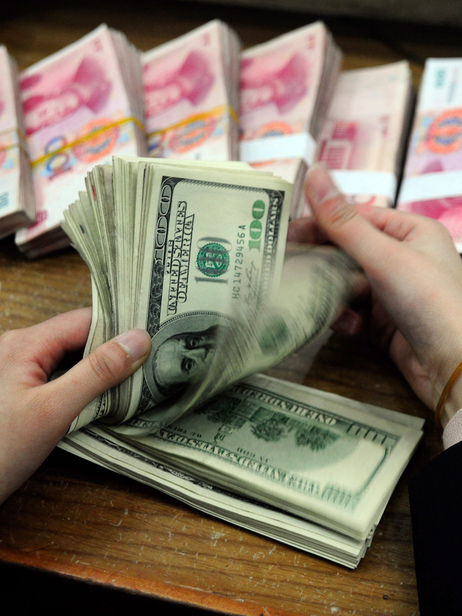CAIRO: Fear that protesters in Suez will disrupt the flow of maritime traffic in the Suez Canal were dispelled Sunday by director of the Suez Canal Authority Ahmed Al Manakhly in a phone in to a state TV program, when he said that despite demonstrations and sit-ins, traffic in the waterway is moving regularly, Egynews.net reported.
He added that the authority is working around the clock in cooperation with the armed forces in order to ensure that operations continue unaffected.
According to Al Manakhly, the constant threats worry ship owners and could cause them to take alternative routes, which in turn threatens the “national security” of the country.
Revenue from Egypt’s Suez Canal rose 16 percent year on year to $445.2 million in June, up 2 percent from a month earlier, a government portal showed on Sunday.
Revenue in June 2010 was $383.7 million. In May 2011 it was $436.6 million.
Alaa Ezz, secretary general of the Federation of Egyptian Chambers, told Daily News Egypt that the mere thought of shutting down or affecting productivity in the Canal is a matter that must be taken seriously.
“We are talking about something that can affect our national sovereignty, not only will the workers not get raises, but the entire country will be harmed,” said Ezz.
The Suez Canal is the highest generator of foreign currency, along with tourism and gas exports, as well as remittance from Egyptians living abroad.
But with the country’s foreign investments and tourism revenues plummeting sharply, experts say the affects of such strikes on the country’s economy could be disastrous.
“Canal revenues constitute about 3 percent of GDP, and are a significant earner of foreign currency, this is key at a time when foreign currency reserves have fallen from $36.6 billion in December to $26.6 billion in June,” said Mike Millar, head of research at Naeem Holding.
According to Ezz, pushing for such strikes at this time will do nothing for the workers or the country.
“There are legitimate demands of a lot of people, we can’t deny that, but it is a matter of timing,” he said. “You could increase salaries by 50 percent and just print more money, but what you would see is inflation because productivity won’t change.”
In order for salaries to increase, the economy first needs to bounce back from the effects of the revolution, which halted productivity, shut down the stock market for two months, and scared away foreign investment along with tourism.
“We have to first get the economy back in place and then start demanding mass increases, tourism has to come back, foreign direct investment needs to come, then the trickle effect will bring the economy back, but not before,” said Ezz..
According to Ezz, unless there are huge “mistakes” in salaries where workers are not making enough to meet their basic needs, then there cannot be a huge increase in wages at the moment.
“Everyone gets paid according to their experience and their productivity,” he added. “People assuming that everyone should be equal is not realistic, this will never happen, this is communism and this is why communism fails.”
Nonetheless, he believes that some companies should revise their workers’ wages in order to reach social justice.
“You can’t have people so underpaid that they cannot even live, while they watch others acquire vast amounts of money,” he added.
In just one month, Suez Canal Shipyards Co., one of the most important revenue generators for the waterway lost LE 30 million, about $5 million, as workers continue striking, according to Khalid Saleh, a representative speaking on behalf of the Suez Canal Shipyard’s Workers’ Union.
“We don’t want these losses, nobody wants them because they affect us all, but this is the option we have had to resort to,” said Saleh.
Until the Supreme Council of the Armed Forces (SCAF) and the Suez Canal Authority give the workers a clear timeline stating when and how their demands will be met, the union will continue affecting productivity in an “open” sit-in, Saleh said.
Their requests included an immediate 40 percent salary increase, better working conditions, and better life and health insurance plans.
After their meeting with Admiral Ahmed Fadel, the head of the Suez Canal Authority, Saleh said that he was optimistic that their demands would be met very soon.
Among the demands of the workers is for their detained colleagues who participated in previous sit-ins to be released. Just last week, military police arrested five workers at companies affiliated with the Suez Canal Authority who had been on strike since June 14.
Aside from workers’ sit-ins, thousands of Suez residents have been demanding justice for the injured and the families of those killed during the early days of the January 25 Revolution.
This Friday, July 8, protesters called for open strikes and sit-ins until the demands of the revolution are met, accusing the Supreme Council of the Armed Forces (SCAF) of violating victims’ rights and calling for the overthrow of the head of SCAF and Egypt’s de facto president, Field Marshal Mohamed Hussein Tantawy.
About 50 ships cross the canal daily, which constitutes about eight percent of global transport and $1.2 billion annually in revenues for Egypt.



